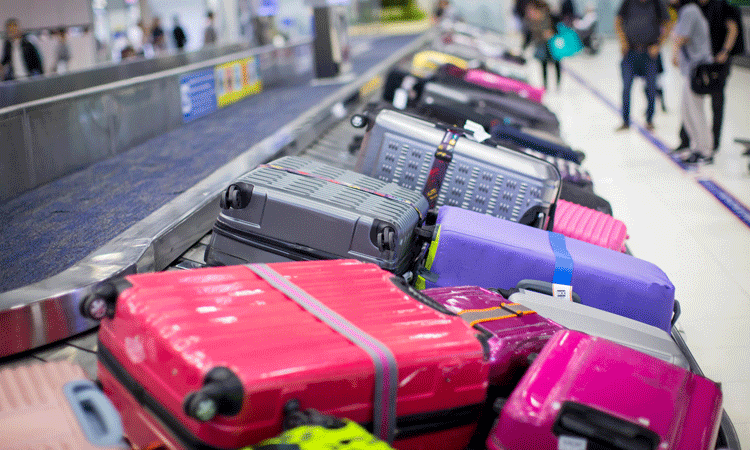Managing baggage operations at Belo Horizonte Airport
- Like
- Digg
- Del
- Tumblr
- VKontakte
- Buffer
- Love This
- Odnoklassniki
- Meneame
- Blogger
- Amazon
- Yahoo Mail
- Gmail
- AOL
- Newsvine
- HackerNews
- Evernote
- MySpace
- Mail.ru
- Viadeo
- Line
- Comments
- Yummly
- SMS
- Viber
- Telegram
- Subscribe
- Skype
- Facebook Messenger
- Kakao
- LiveJournal
- Yammer
- Edgar
- Fintel
- Mix
- Instapaper
- Copy Link
Posted: 25 November 2021 | Robson Freitas | No comments yet
Robson Freitas, Head of Operations, Safety and Security at Belo Horizonte International Airport, explains how his airport manages its baggage operations and how airports can offer new baggage services to their passengers which improve the customer experience.


It is known that baggage operation is entirely the responsibility of the airlines, which hire ground handling companies to carry out the operation. This operation is sensitive and can strongly impact the image of the airport, as a delay in delivery can bring severe inconvenience to users and consequently, to customer experience. It can also make a difference to the airport’s ability to attract, or keep, a major airline hub.
Baggage handling systems
Baggage handling systems (BHS) is a type of conveyor system installed in airports and takes up a significant part of an airport’s operation. In particular, an entryway BHS is an essential component as it facilitates a smooth transition for baggage flowing from the check-in area to the general BHS by determining an appropriate workload balance for a BHS line being shared by multiple airlines.
At Belo Horizonte International Airport (CNF) we invested nearly $6 million into a BHS that connects three explosion detection system (EDS) machines, exclusively for international flights and/or connection flights (domestic to international).
BHS redundancy and contingency plan
The keys factors during the BHS design phase is implementing a redundancy and contingency plan. Every path in the BHS should have a diversion, every vital system integrated with a backup system and every standard operating procedure must have a fall-back plan. Belo Horizonte Airport is using the Power Apps application (via Office 365) for monitoring NO READS baggage and also to guide BHS operators regarding specifics contingencies actions. The tool allows for the right decision making and an acceptable response time in solving contingencies, with a simple critical point map that they just need to flag in the box to start the automatic trigger action plan for different actors.
Ground handling licence
Belo Horizonte Airport has co-ordinated, with all ground handling companies, an agreement to establish the requirements to be observed by them in the provision of auxiliary air transport services carried out at the airport. The ground handling licence (GHL) regulates the operational activities of support and service of aircraft on the ground, baggage loading/unloading, cleaning and moving of equipment and aircraft on the ground, so that they are performed in line with the latest and best national and international references of quality, efficiency, innovation and operational security.
The GHL is followed by annexes:
Annex I – Ramp equipment for Terminal 2 operations
Annex II – Service and performance levels (KPIs)
Annex III – Penalties
Annex IV – Licence for provision of auxiliary transport service air (signature is required for any ground handling company that plans to operate at Belo Horizonte Airport)
Annex V – Airport operations manual
Monthly, the operations team discusses the agreement’s performance indicators internally and, if necessary, create a tactical working group with the handling companies within the airport collaborative decision making (A-CDM) methodology.
Among the various KPI’s monitored by the agreement, the times of first and last baggage are crucial and require daily monitoring to achieve the goals agreed between the airport and the handling companies.
The target or acceptable level: 90 per cent of flight service operations must have times equal, to or less than, those established by the airport operator.
Operational excellence: It is considered to have reached the level of ‘excellence’ in baggage return for the handling company to present an index equal to, or greater than, 95 per cent of its landing operations within the target established by the airport operator.
International best solution ongoing
The baggage process is a source of stress for the passenger: Transporting their bags, queuing up to check them in to dispatch, being anxious about whether or not the bag will arrive at the destination, and then the uncertainty if a bag is lost. There are some solutions or initiatives to contribute to airports baggage operations that passengers would want to see improved. The airlines and airports can improve the baggage operations process from the passenger perspective, such as:
- Permanent bag tags: A reusable tag that makes use of Near Field Communication (NFC) and/or Radio Frequency Identification (RFID) technology, and is designed to replace the traditional paper bag tag
- Home-printed bag tags: A key benefit is that it allows passengers to take more control over their own travel experience, while in theory it should also reduce queuing times at the airport, as the passenger only has to drop their bag off, rather than check it in and wait for an agent to print and attach the tag
- Baggage delivery: This service allows passengers to have their bags delivered directly to their hotel once they land, and from their hotel to the airport for the return journey. Passengers can either book in advance via their smartphone or register to use the service on the day, and they simply have to drop off their bag or collect it from a booth at landside arrivals. Passengers are then able to track the status of their bag using their smartphone and once it has been delivered, they receive an SMS or WhatsApp informing them
- Off-site/remote bag drop: Allows the passengers to check-in and drop off their bags at a downtown location – another service that can make the lives of travellers easier. In Brazil, for instance, there was a unique experience during the Olympic and Paralympic Games, when all remote bag drop was done in the Olympic Village.
Biography


Issue
Related topics
Aircraft, Airport development, Baggage handling, Ground handling, New technologies, Passenger experience and seamless travel, Safety, Security, Terminal operations


















